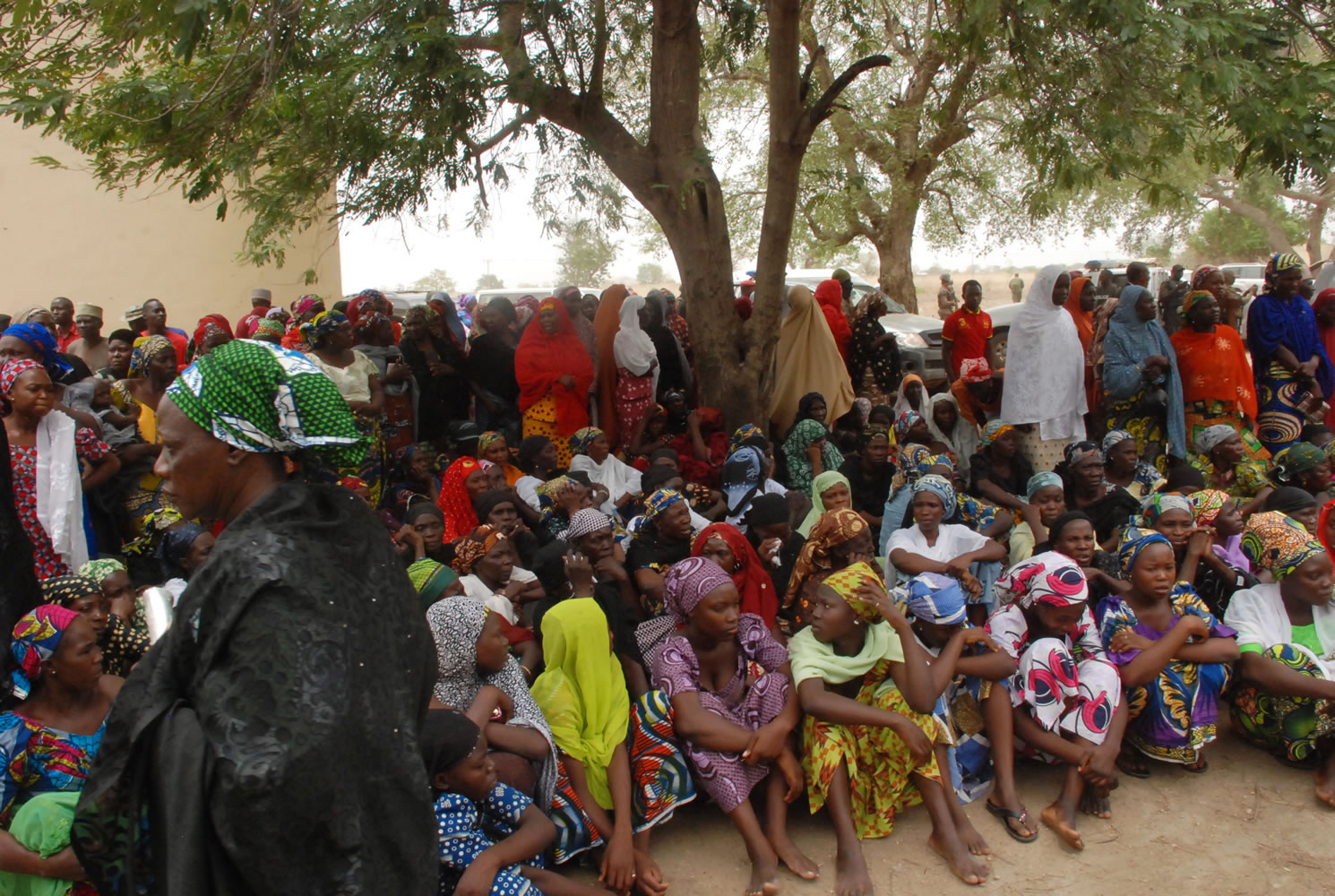KANO, Nigeria — Escape seemed hopeless. The militants’ convoy of pickup trucks, buses and motorcycles penetrated deep into the northeastern Nigerian forest in the dead of night with its haul: more than 300 schoolgirls.
Motorcycles puttered on either side, with men wielding AK-47s ready to shoot any girl who tried to jump from a truck and run.
The first thing the Boko Haram insurgents did when they stopped to camp in the forest near a village called Baale was put some of the girls to work cooking looted food. Others were taken at gunpoint to carry water.
“I was one of those chosen to cook,” a 16-year-old said in a phone interview, .
The girl said her mind raced as she stirred the pot of rice over a wood fire. The Boko Haram gunmen had the group surrounded, constantly watching.
“My mind was busy,” she said. “… I and two other girls were close together, speaking softly, and we came up with a plan.”
The girls told the gunmen they needed to relieve themselves. They were allowed to walk into the bush.
“As soon as we were out of sight of the gunmen, we fled and we ran for about two hours,” the girl said. Eventually, the three stumbled across a group of Fulani herders, who rescued them.
According to police and other officials in Borno state, where Chibok is located, 53 girls had escaped the gunmen as of Friday, and 276 remained missing.
The girls had gathered in Chibok for a few days in April to take exams. They woke the night of April 14, terrified, when distant gunfire broke out. It moved closer, and two hours later, dozens of men in camouflage entered the school compound with pickup trucks, buses and motorcycles.
“We thought they were soldiers,” a 17-year-old said in a phone interview. “They told us … they had been sent to take us to safety because Boko Haram was attacking the town.”
Outside, they watched, puzzled, as the gunmen broke into a school kitchen, grabbing pots and utensils.
“Suddenly they began to chant ‘Allahu Akbar’ (God is great) as they set the school buildings on fire,” the girl said. “That was when we realized we were in the hands of Boko Haram.”
With gunmen on motorcycles flanking the convoy, it was impossible to jump off the truck and flee, she said.
The journey didn’t go smoothly. One of the trucks broke down. The gunmen ordered girls to cram into another truck, burned the disabled vehicle and continued on. Next, one of the buses broke down.
“At that moment, some of us jumped out of the vehicles and ran into the bush,” the 17 year-old said.
Human rights groups have accused Nigeria’s military of a scattershot response to Boko Haram’s attacks, often killing civilians. It has also been accused of shooting suspected members of Boko Haram without arrest or trial, failing to protect northeastern communities and being slow to respond to reports of Boko Haram activity.
Enoch Mark, whose daughter and two nieces were taken by the gunmen, said in a phone interview that the people of Chibok waited for military help.
“Three days after the kidnapping, when we realized nothing was being done to rescue our daughters, we parents mobilized hundreds of residents from Chibok and neighboring villages, including vigilantes, and went after the kidnappers in the forest, on motorcycles,” Mark said.
The villagers collected money for gasoline and armed themselves with sticks, knives, machetes and hunting guns. The group traveled 60 miles to Baale. Residents there told them the Boko Haram group had the girls and were camped nearby.
“The villagers begged us not to proceed. … They said we’d put the lives of our daughters in danger,” Mark said.
It was growing dark. The men, frustrated and afraid, turned back, hoping to return with army support.
The next day, the group approached a military barracks in Bama, 42 miles southeast of Maiduguri, the capital of Borno state. The military commander told them to put their report in writing, but nothing was done.
Nearly three weeks passed before President Goodluck Jonathan spoke publicly about the case, promising to recover the girls but acknowledging that authorities had no idea where they were.



